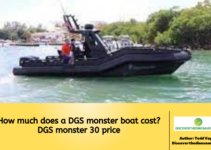Can i use a car Alternator on my boat? A car alternator is a great option for powering your boat, but you need to make sure that it is the right type of alternator for your boat.
can i use a car alternator on my boat will help you determine if a car alternator is the best solution for powering your boat.
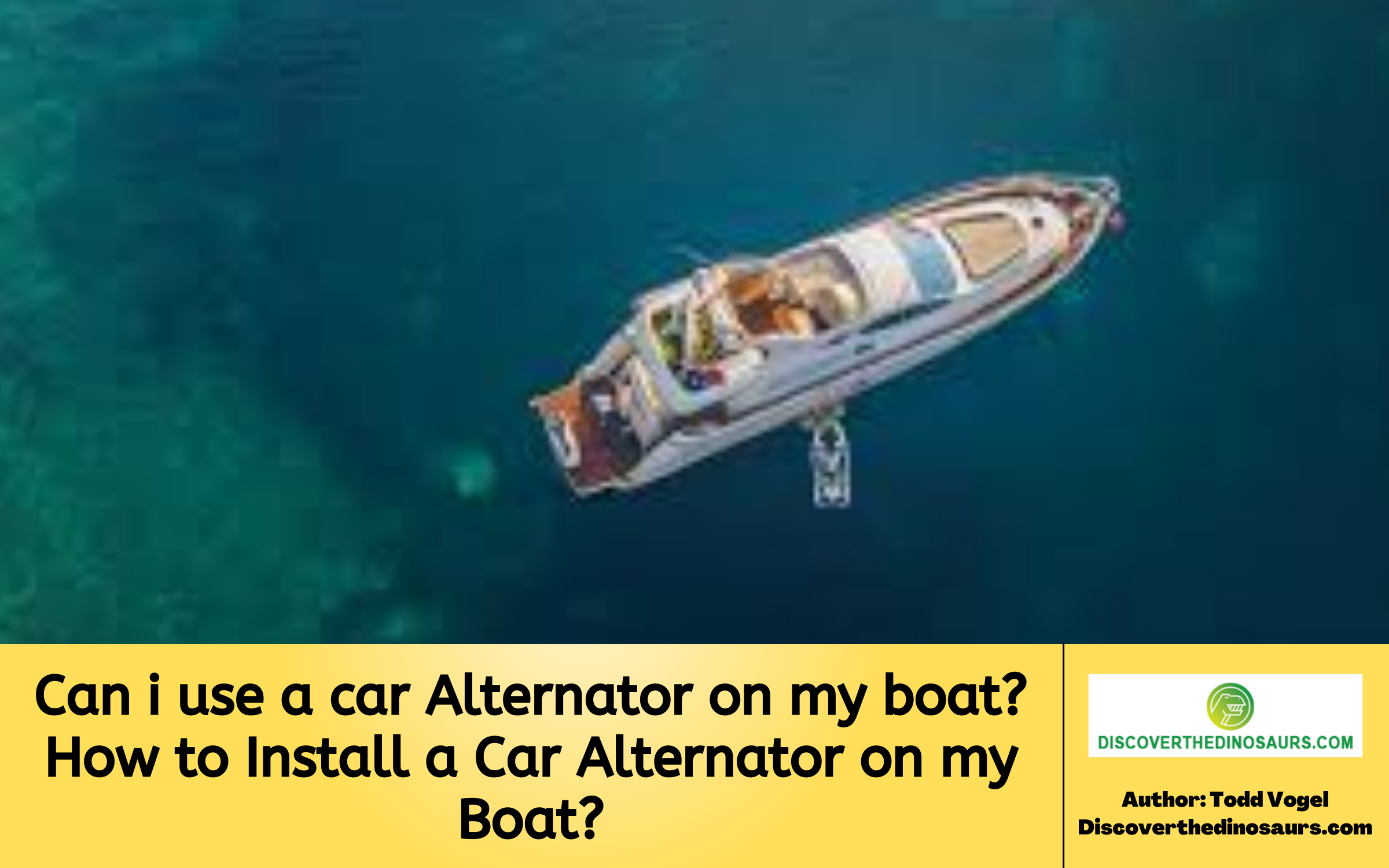
Can i use a car Alternator on my boat?
With only 3 minutes of reading the article, Todd Vogel will help you answer the question “Can i use a car Alternator on my boat?” and provide more relevant knowledge. Let’s find out together!
What Is the Function of an Alternator in a Car?
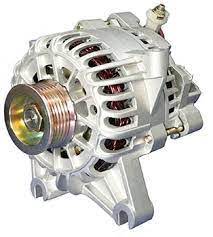
What Is the Function of an Alternator in a Car?
What is the Function of an Alternator?
The alternator is a vital part of your car’s electrical system, serving to recharge the battery and power the vehicle’s electrical accessories.
How Does an Alternator Work?
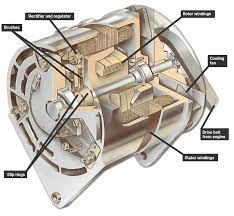
How Does an Alternator Work?
Alternators work by harnessing the rotational energy of the engine to generate electricity. The pulley on the alternator spins as the engine runs, and this motion drives the alternator’s internal parts to generate an electric current. This current is then sent to the car’s battery, where it is used to recharge it.
The battery provides power to the starter motor, which starts the engine, as well as power to the vehicle’s electrical accessories when the engine is running.
Without a working alternator, the battery will eventually drain, leaving you without power to start the engine or operate any of the electrical accessories.
In short, the alternator’s job is to keep the battery charged and the electrical accessories running.
Alternators can fail for a number of reasons, but the most common cause is a failure in the bearings. The alternator’s bearings support the pulley, and over time they can wear out and fail.
When this happens, the alternator will make a grinding noise and eventually seize up, preventing it from generating electricity.
If your car’s battery is not being recharged or if the electrical accessories are not working, it could be a sign that the alternator is failing. Have the alternator checked by a qualified technician to diagnose and repair the problem.
The function of an alternator in a car is to recharge the battery and power the vehicle’s electrical accessories. Alternators work by harnessing the rotational energy of the engine to generate electricity, which is then sent to the car’s battery.
If the alternator is not working properly, the battery will eventually drain, leaving you without power to start the engine or operate any of the electrical accessories.
If your car’s battery is not being recharged or if the electrical accessories are not working, it could be a sign that the alternator is failing and needs to be repaired by a qualified technician.
Characteristics of an Automotive Alternator
An automotive alternator is a three-phase generator with a built-in rectifier circuit consisting of six diodes. The diodes convert the alternating current (AC) output of the generator into direct current (DC), which is then used to charge the vehicle’s battery.
The average automotive alternator generates between 13 and 16 volts of DC power at 1,000 to 6,000 revolutions per minute (rpm). The power output of the alternator increases as the engine speed increases.
Most automotive alternators are belt-driven, meaning they are connected to the engine via a serpentine belt. The alternator’s pulley is attached to the engine’s crankshaft, and as the engine runs, the pulley spins, which drives the alternator’s internal parts to generate electricity.
Can We Use a Car Alternator on my Boat?
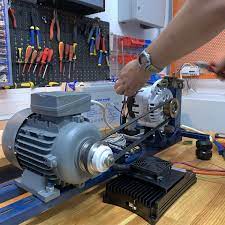
Can We Use a Car Alternator on my Boat?
As you know, the function of an alternator in a car is to recharge the battery and power the vehicle’s electrical accessories. Alternators work by harnessing the rotational energy of the engine to generate electricity, which is then sent to the car’s battery.
If the alternator is not working properly, the battery will eventually drain, leaving you without power to start the engine or operate any of the electrical accessories.
The answer to whether you can use a car alternator on your boat is… maybe. It depends on a few factors, such as the type of boat you have and the type of engine it is equipped with.
If your boat has a gas engine, then it is likely that you will be able to use a car alternator, as long as it is the same voltage. However, if your boat has a diesel engine, then it is not recommended to use a car alternator, as the diesel engine will require a higher output alternator.
It is always best to consult with a qualified marine technician to ensure that you are using the right type of alternator for your boat.
Marine Alternator Vs. Automobile Alternator
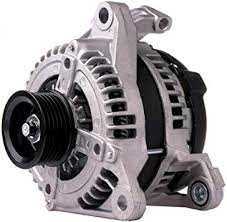
Marine Alternator Vs. Automobile Alternator
Similarities
- Both alternators generate electricity to charge batteries
- The engine speed determines the power output of the alternator
- Alternators are belt-driven, meaning they are connected to the engine via a serpentine belt
The Distinctions
- An automotive alternator typically generates between 13 and 16 volts of DC power at 1,000 to 6,000 revolutions per minute (rpm), while a marine alternator usually puts out between 28 and 30 volts at 800 to 3,600 rpm.
- Most car engines are gas powered, while the majority of boat engines are diesel.
- Diesel engines require a higher output alternator to function properly.
- Automotive alternators are typically smaller in size than marine alternators.
- Marine alternators are designed to withstand the harsh conditions of salt water and high humidity, while automotive alternators are not.
In conclusion, you can use a car alternator on your boat, but it is not recommended unless you have a gas engine and the correct voltage. It is always best to consult with a qualified marine technician to ensure that you are using the right type of alternator for your boat.
How can I install an Alternator from a Car into my Boat?
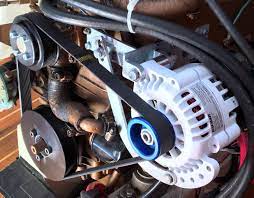
How can I install an Alternator from a Car into my Boat?
The installation process needs to be performed by a professional.
1. First, you need to identify the type of engine in your boat. If it is a gas engine, then you can use a car alternator. However, if it is a diesel engine, then you need to use a marine alternator.
2. Next, you need to determine the correct voltage for your boat. Alternators generate electricity, and the voltage needs to be compatible with your boat’s electrical system.
3. Once you have determined the correct voltage, you can begin the installation process. First, you need to remove the old alternator from your boat. Then, you will need to install the new alternator in its place. Finally, you will need to connect the new alternator to your boat’s electrical system.
4. Once the installation is complete, you will need to test the new alternator to make sure it is working properly. You can do this by starting your boat’s engine and observing the voltmeter. If the voltmeter reads the correct voltage, then the alternator is working properly. If it does not, then you will need to troubleshoot the problem.
5. Finally, you need to maintain your alternator to ensure it continues to work properly. You should regularly check the belt that connects the alternator to the engine. You should also regularly clean the alternator’s housing. This will help to prevent corrosion and keep the alternator working properly.
Installing an alternator from a car into your boat can be a difficult and complicated process. It is always best to consult with a qualified marine technician to ensure that you are using the right type of alternator for your boat.
Are There Any Dangers Associated with Using an Alternator from a Car on My Boat?
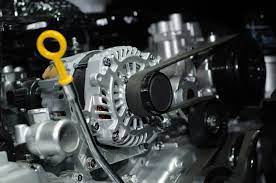
Are There Any Dangers Associated with Using an Alternator from a Car on My Boat?
Using an alternator from a car on your boat can be dangerous if you do not take the proper precautions. First, you need to make sure that the voltages are the same.
Most automotive alternators are 12 volt, while most boats require a 24 volt system. If the voltages are not the same, you will need to purchase a voltage regulator in order to use the alternator.
Another thing to keep in mind is that marine alternators are designed to withstand the harsh conditions of salt water and high humidity. Automotive alternators are not, so if you live in an area where your boat will be exposed to salt water, it is important to purchase a marine-grade alternator.
Finally, you need to make sure that the output of the alternator is high enough to power your boat. Most automotive alternators generate between 13 and 16 volts of DC power, while most boats require a higher output alternator.
If you are unsure, it is always best to consult with a qualified marine technician before making any changes to your boat.
F.A.Q about “Can i use a car Alternator on my boat?”
Is an alternator for a boat the same as an alternator for a car?
Alternators designed specifically for use in maritime applications include the following features, which are absent from automotive-grade alternators: Spark screens that are up to the specifications set by the United States Coast Guard in order to remove the alternator as a potential source of ignition.
Insulation on both sides to avoid the risk of electrical shock in damp situations and to forestall sparks.
How many volts should an alternator on a boat be able to produce?
If the alternator is producing 13 to 15 volts while spinning at less than 2000 rpm, everything is in working order. The voltmeter should register greater than 12.5 volts while the key is in the on position and there is NO motor running.
Measure the voltage of the battery while there is no load on it using a digital volt meter if you have one. When fully charged, it should show a voltage of 12.6 volts.
What is the amp rating of a boat’s alternator?
25–30 Amps is the normal range of sustained output that may be expected from these factory alternators.
It is simple to comprehend how the installation of a high-output alternator with a capacity of 100 Amps and an actual output of the same amount might more than triple the quantity of power that is accessible on board and significantly cut the amount of time that the engine is required to run.
The alternator on a boat uses AC or DC current?
AC can be produced by car generators. All of the generators on your yacht, whether they are integrated into the engine or stand-alone units, are capable of producing AC.
After that, it is “rectified,” which means that it is converted to DC, and then it is utilized to charge your batteries and run your devices.
How do I go about selecting an alternator for my boat?
Your home’s alternator should be able to generate a rated output that is comparable to the maximum rate of acceptance of the battery bank that you use in your home.
In other words, the rating of the alternator should correspond to either 25 percent (for lead acid batteries), 30 percent (for gel batteries), or 45 percent (for AGM batteries) of the total battery capacity.
Conclusion
Can you use a car alternator on your boat? The answer is, it depends. Some alternators are designed specifically for marine applications and will have features that make them better suited for use in a boat. However, if you have an automotive alternator lying around, it may be possible to adapt it for use in your boat.
Just be sure to take into account the unique needs of a marine environment when selecting and installing an alternator on your vessel.
This discoverthedinosaurs.com post will show the information about “Can i use a car Alternator on my boat?”
- smart alternator controller
- boat alternator
- how to install an alternator on a boat
- marine external voltage regulator
- sailboat high output alternator
- how does a marine alternator work
- what is an external regulator alternator
- how to install a marine alternator

